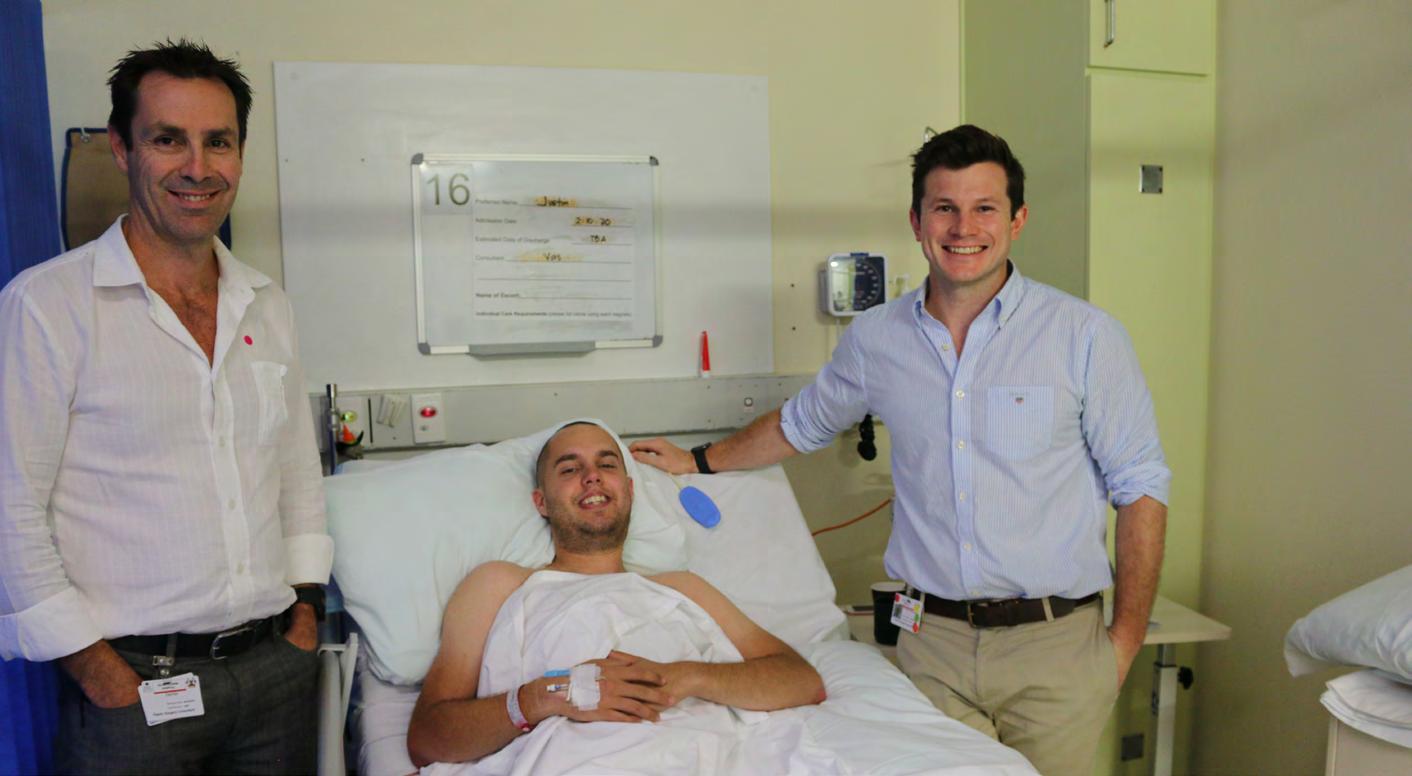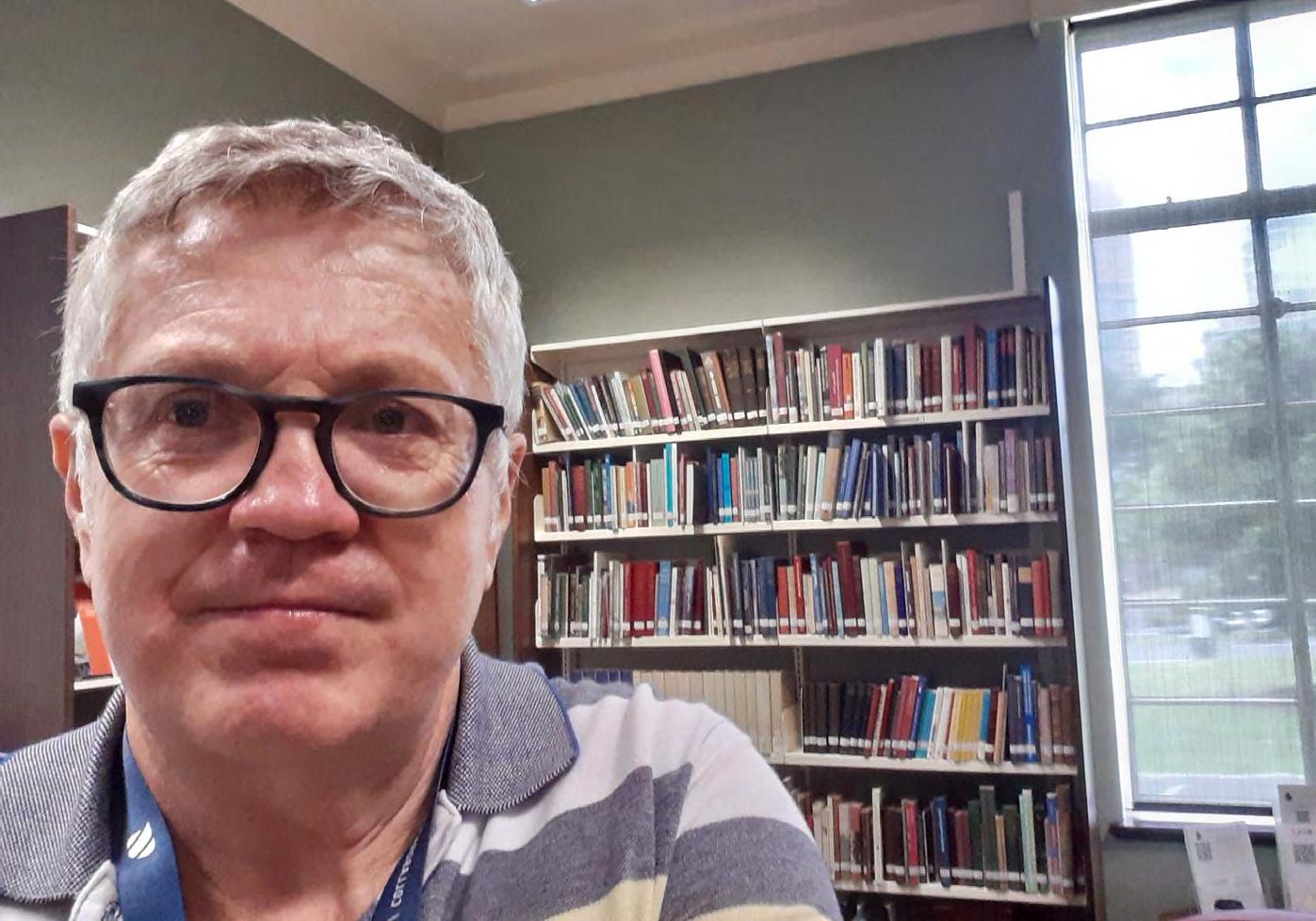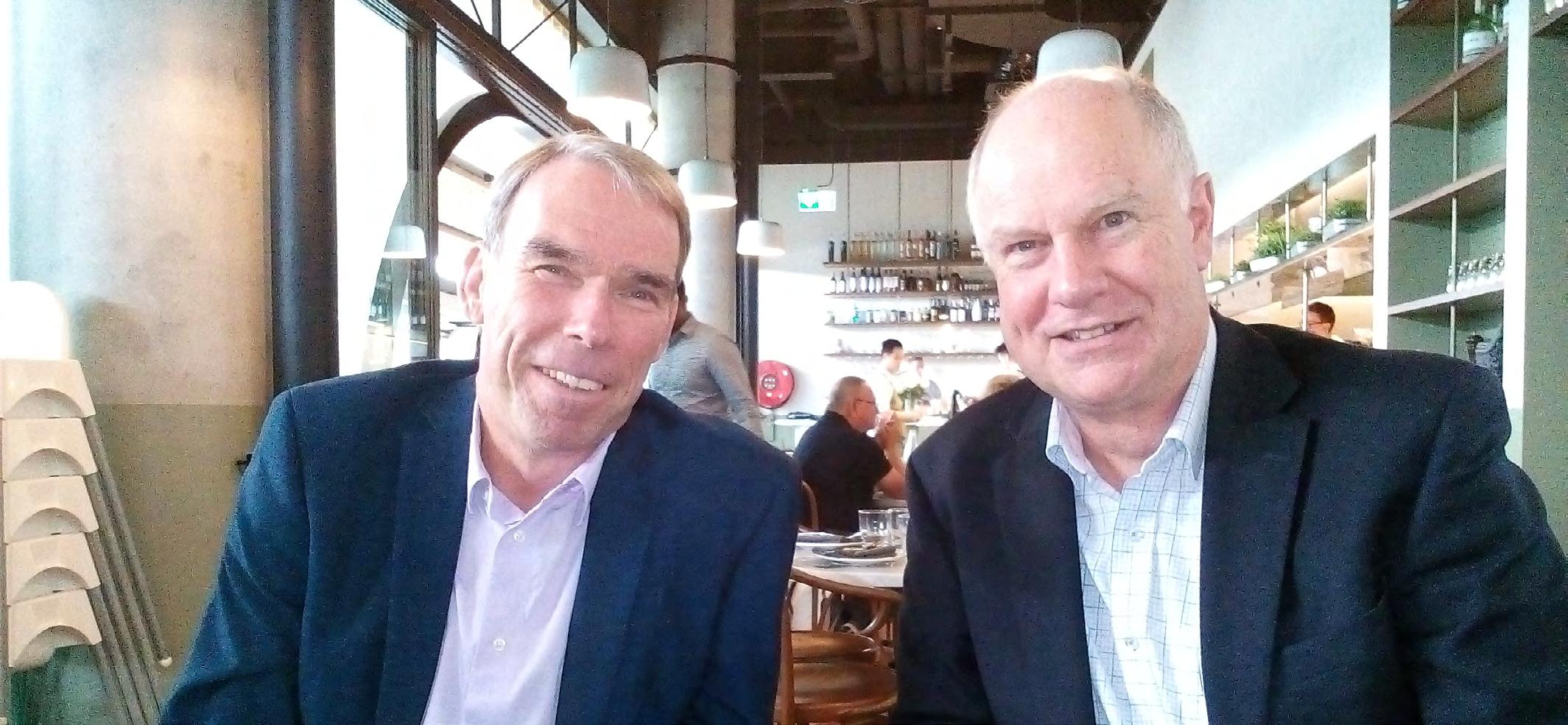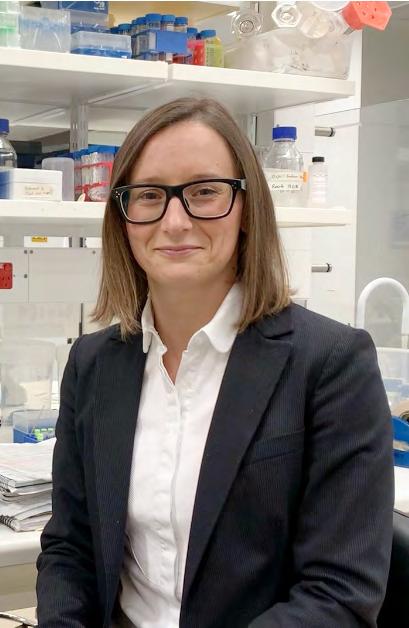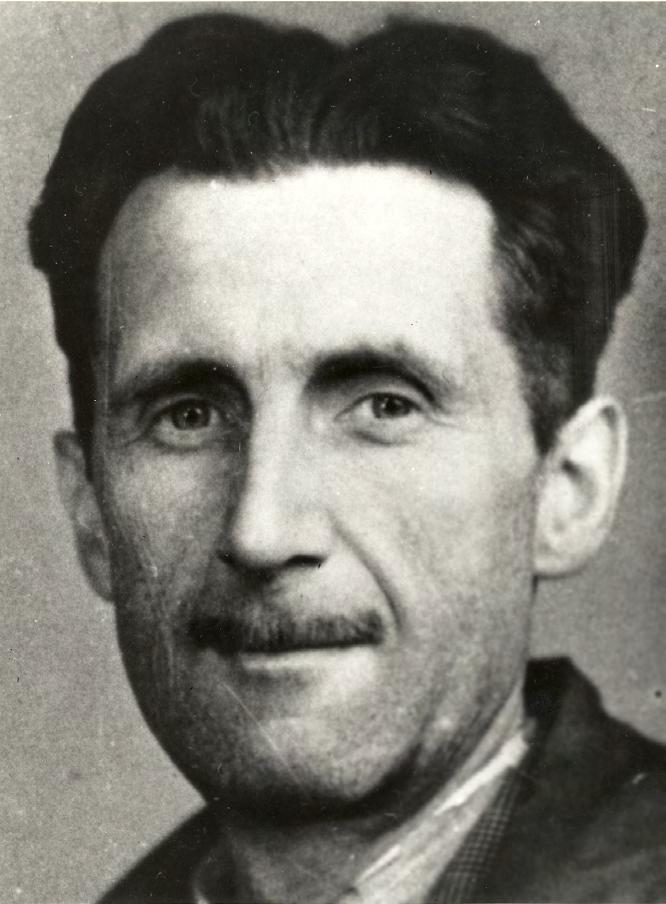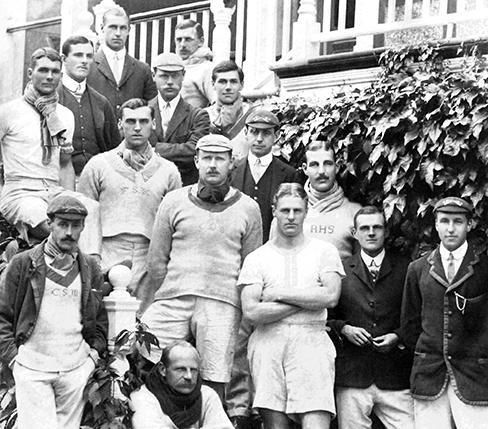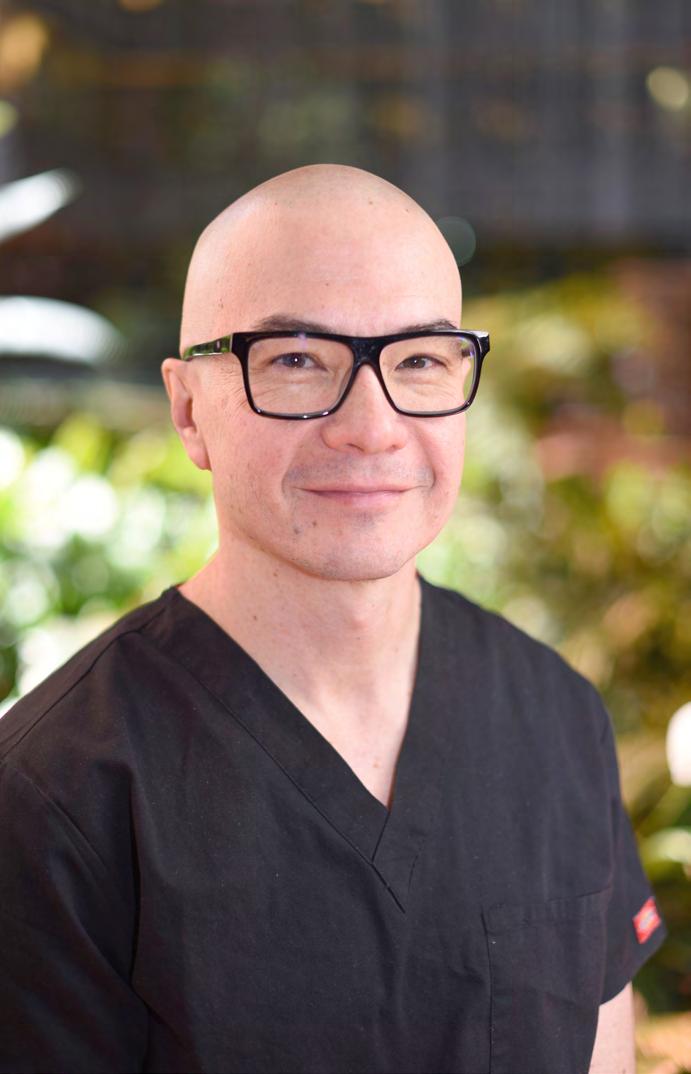
6 minute read
A/Prof Kong on Black Lives Matter
Associate Professor Kelvin Kong on Black Lives Matter
Associate Professor Kelvin Kong was striding into John Hunter Hospital in Newcastle to treat a patient with COVID-19 when he was stopped in his tracks. “Deliveries are out the back,” a hospital worker said to him. A surgeon with 13 years’ experience, Associate Professor Kong was offended to be mistaken for a truck driver. But he didn’t get angry. He simply explained who he was, entered the hospital and got on with his job. When the incident was described on Twitter by a colleague, Associate Professor Kong remained remarkably gracious. “Awareness of unconscious bias is required, so we treat everybody kindly,” he wrote. “I can manage, I worry for my mob.” The tweet prompted others to share similar experiences. One Indigenous general practitioner said he had been asked to refrain from eating food that was set up for a committee meeting he was attending. A British barrister with dark skin said she was mistaken for a defendant three times in one day. Associate Professor Kong said these acts are generally not malicious but highlight how much people need to be taught about unconscious bias and racism. And 2020, for all its devastation, seems a good year to discuss it. Racism in all its forms has been in the spotlight this year. The suffocation of George Floyd by a police officer in the United States (US) reignited the Black Lives Matter movement, prompting similar action in Australia. The message went global via social media. At the same time, COVID-19 has ravaged Black and other minority communities in the US and the United Kingdom, mostly due to health inequities. In July, Associate Professor Kong and his family participated in a Black Lives Matter rally in Newcastle along with some of his medical colleagues. He relished the opportunity to discuss racial injustices, including deaths in custody and Australia’s history of slavery. “For me it’s been a wonderful conduit to start the conversation,” he said. “A lot of people are fearful of the conversation and scared of being called racist when they’re not racist, they’re just lacking the truth.” When COVID-19 reached Australia, Associate Professor Kong knew it posed an extraordinary risk to Indigenous people, who have higher rates of risk factors for severe illness, such as hypertension and diabetes. He was quick to shut down clinics he attends in remote areas of New South Wales and the Northern Territory to prevent transmission. While this undoubtedly reduced the risk of COVID-19 in those communities, the action was a double-edged sword, exacerbating delays for other medical care.
Advertisement
Despite these setbacks, Associate Professor Kong wants to build on the momentum created in public health this year. He said that if Australian health authorities can do such a good job of protecting Indigenous people from COVID-19, it’s time to devote similar effort to other problems plaguing his people. Associate Professor Kong has good reason to fear for Indigenous people. Aboriginal and Torres Strait Islander people are twice as likely as non-Indigenous Australians to have a severe or profound disability,1 and can expect to die almost 10 years earlier than non-Indigenous Australians.2
One thing Associate Professor Kong would like to see is a revision of triage systems to ensure life-changing interventions for children, such as treatment for otitis media, are prioritised. It saddens him to see Indigenous children waiting up to three years for treatment, causing their hearing, speech and wellbeing to deteriorate. The pain and disruption for such children causes other problems for their families who are shunted around the health system, costing them money and time off work.
“If that kid gets an operation and gets their hearing back, within weeks they will be back on the curve of normal learning,” he said. Associate Professor Kong is also passionate about making health services more attractive to Indigenous people. When he hears statistics about the proportion of Indigenous people who leave hospital without being treated he wants health professionals and their staff to reflect on why this is the case. These statistics should prompt services to ask whether they are delivering culturally appropriate care, and if not, why not? He is pleased that the College is doing its part to educate surgeons about cultural competence and cultural safety in its Cultural Competence and Performance Guide. Associate Professor Kong understands why Indigenous people are frightened of hospitals. For as long as he can remember, hospitals were considered places to avoid. “If you went to hospital you would be turned away. If you went to hospital you wouldn’t come home,” Associate Professor Kong said of the anecdotes he heard while growing up. Hospitals were associated with particularly traumatic events in his family, too. When Associate Professor Kong’s mother was in hospital as a child with her mother – Associate Professor Kong’s grandmother – they were warned not to return to her community because “the ordinance officers were coming”. Children were being taken away from their parents as part of Australia’s assimilation policy. Associate Professor Kong’s mother and grandmother promptly ran away with his grandfather and didn’t see the rest of their family for another 40 years. Associate Professor Kong’s grandfather later died of a heart attack in his 50s. To this day, the family wonders if he received appropriate treatment. Despite the intergenerational fear, Associate Professor Kong’s mother decided to become a nurse, and her interest in medicine rubbed off on him and his older sisters. It wasn’t the most natural path to follow. In secondary school, he remembers a careers counsellor encouraging him to become a tradie. But after hearing two Aboriginal
Associate Professor Kelvin Kong with his daughter, Ellery.

medical students speak at a careers day, everything changed. Associate Professor Kong and his sisters decided to put their heads down and pursue medicine. They wanted to serve their community. This was confirmed to Associate Professor Kong when he treated his first Aboriginal patient at St Vincent’s Hospital in Sydney. The Aboriginal Elder reminded Associate Professor Kong of his grandmother. After he took an extensive history, the woman started to cry. “I thought what have I done? I’ve mucked this up … And then she said: ‘I never thought I would live to be treated by an Aboriginal doctor’. It highlighted to me the professional inequity we have. To have someone understand the trauma she’d been through in her life was huge.” In 2007, Associate Professor Kong became the first Indigenous surgeon in Australia when he completed his Fellowship in Otolaryngology Head and Neck Surgery. He is now an ear, nose and throat surgeon and Associate Professor of Medicine at the University of Newcastle and the University of New South Wales. One of his sisters became the first Indigenous obstetrician in Australia and his other sister is a specialist general practitioner. He takes some pride in this, but is mostly embarrassed that it’s still such a novelty for Aboriginal people to become medical specialists. Rather than standing out, Associate Professor Kong wants to see more diversity among surgeons so that Australia’s multicultural community is truly reflected in its health workforce. He said the College has been extremely supportive and continues to break barriers down in Aboriginal, Torres Strait Islander and Māori health.
As part of the College’s Diversity and Inclusion Plan, Associate Professor Kong wants to see young Indigenous doctors and Trainees being mentored the way he was, so they get practical advice. He is encouraged by the calibre of young Indigenous doctors he mentors and says other surgeons have also been very willing to mentor. Closer to home, Associate Professor Kong feels optimistic that Indigenous people are speaking up and being heard. When his Nan and mother were growing up, they tended to hide their Aboriginal culture for fear of persecution. “When I was growing up you could talk about it, but most of the time it was suppressed. Now my son wears his Koori t-shirt to pre-school and is proud as punch. That’s what we want in Australia, for people to feel safe.”
REFERENCES
1. First Peoples Disability Network Australia. [Internet] 2019. Available from: https://fpdn.org.au/. 2. Australian Institute of Health and Welfare. Indigenous life expectancy and deaths. [Internet] 2020. Available from https:// www.aihw.gov.au/reports/australias-health/indigenous-life-expectancy-and-deaths.


